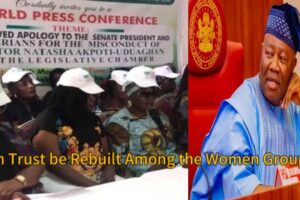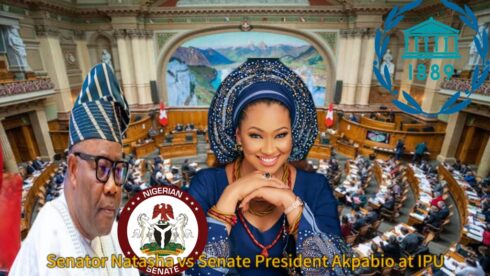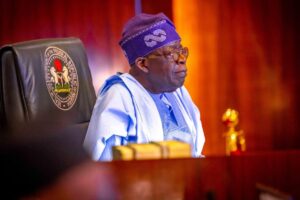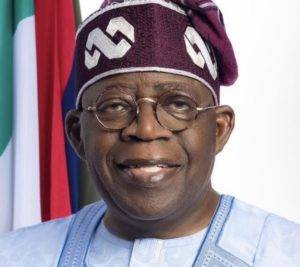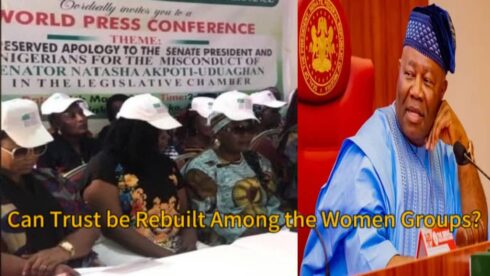The economic reform embarked on by President Bola Tinubu’s administration has added a new dimension to Nigeria’s economic landscape. Following his declaration that “subsidy is gone” during his inaugural speech in May 2023, Nigerians witnessed a surge in the prices of transportation and foodstuff. This drastic policy change aimed to eliminate the longstanding fuel subsidy, which has been a financial burden on the government.
In response to the ensuing economic crisis, President Tinubu introduced a series of measures to alleviate the impact on the populace. These included the distribution of grains to each state, grants to qualified small business owners, and interest-free loans for eligible Nigerians. Additionally, the administration boosted the allocation of funds to each state to help ease the suffering of the people. Recognizing the importance of education in economic empowerment, the President also directed the establishment of a portal where students can access loans to pursue their studies.
On June 27, at the 142nd National Economic Council (NEC) meeting, President Tinubu unveiled new plans to further cushion the effects of his administration’s economic reforms. Experts believe these measures will eventually yield positive results for the country and its over 200 million citizens.
Revving Up Food Production
At the recent NEC meeting, President Tinubu issued a directive to state governors to submit their plans for increasing food production within seven days. This initiative underscores the administration’s focus on addressing the food crisis exacerbated by the economic reforms. President Tinubu emphasized the critical need to boost food production as a means to stabilize the economy, ensure food security, and create job opportunities for both young and older Nigerians.
President Tinubu assured the governors of his full support, asking them to specify the type and extent of assistance required from the federal government. “How much support do you need from me, and in what form? I am prepared to provide it. But we must achieve the result. There is nothing we are doing that is more important than producing high-quality food for our people to consume, buy, and sell. We create jobs in the production of it. And that is before we generate wealth by exporting the excess. It is not beyond us to achieve this for Nigerians,” the President Tinubu stated.
This comprehensive approach aims not only to mitigate the immediate economic challenges but also to establish a sustainable framework for long-term economic growth. By focusing on food production, the administration hopes to combat inflation, reduce dependency on food imports, and enhance Nigeria’s economic resilience.
National Construction and Household Support Programme by President Tinubu
President Bola Tinubu has introduced the National Construction and Household Support Programme as a strategic measure to alleviate the economic hardships facing Nigerians. This initiative promises to extend financial relief to 100,000 families across the 36 states, each receiving a grant of N50,000 for three consecutive months. Such a substantial commitment underscores the administration’s dedication to directly addressing the financial strain on households.
In addition to these grants, the programme encompasses a comprehensive disbursement of funds to enhance food security and household stability. President Tinubu announced that N155 billion would be allocated for assorted food supplies, N540 billion for household grants, and an additional N10 billion earmarked for CNG buses for each state. This multifaceted approach aims to provide immediate relief while fostering long-term economic resilience.
CNG Conversion 50% Reduction
A significant component of President Tinubu’s economic strategy is the 50% reduction in the cost of converting vehicles to use Compressed Natural Gas (CNG). This measure is designed to encourage the adoption of CNG as an alternative to Premium Motor Spirit (PMS), whose prices have soared following the removal of fuel subsidies. Previously, the conversion kits cost between N1.2 million and N1.5 million; however, with the reduction, prices now range from N600,000 to N750,000.
This initiative draws inspiration from countries like Iran, Pakistan, Argentina, Brazil, and China, where CNG has become a preferred alternative due to its cost-effectiveness compared to diesel and petrol. The Tinubu administration anticipates that widespread adoption of CNG in Nigeria will significantly cut transportation costs and reduce the nation’s dependency on more expensive fuel options. Analysts have lauded this move, emphasizing the need for state governors to ensure the effective distribution of these palliatives and collaborate with the federal government to boost food production.
Table of Contents
Discover more from OGM News NG
Subscribe to get the latest posts sent to your email.




